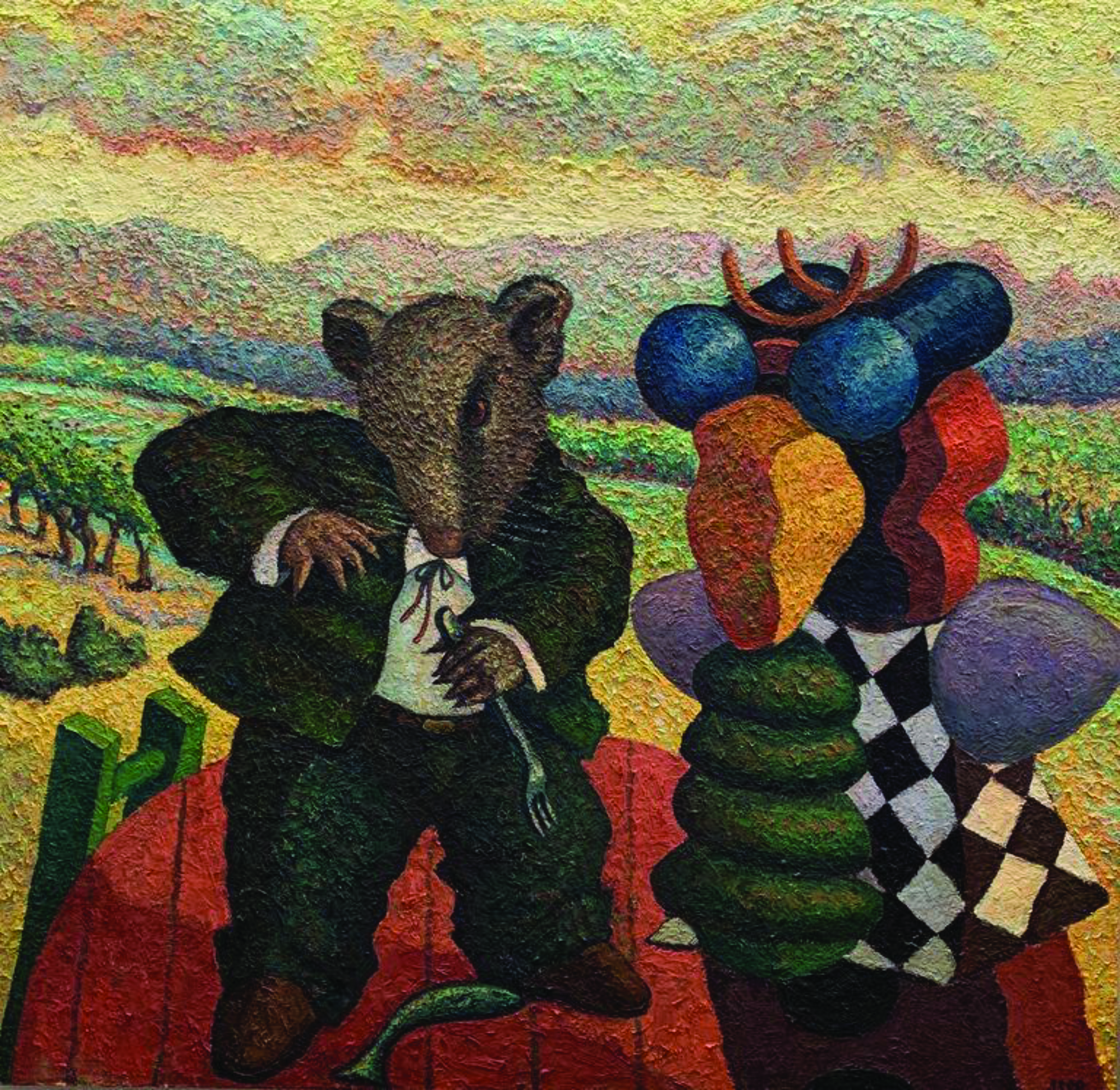
3 minute read
Art Around Town: Scumbling Edition, Belcher Center
Explore LMFA’s collection around Longview and surrounding areas.
Tucked away in an obscure seating area of the Belcher Center on the LeTourneau campus is a curious work of art. It is a painting, six feet tall and eighty inches wide, making it one of the largest two-dimensional works in the LMFA’s Permanent Collection. In it, two figures have climbed a steep ladder to stand on a round platform. One is an anthropomorphic rat dressed in a green suit, white shirt, and brown shoes. There is a rather ordinary fish between his feet, and he is holding a long fork. The other figure is made of a collection of shapes, colors and textures, and vaguely resembles a girl in a checkered dress. Behind them is a sweeping landscape with an Italianesque orchard in the near distance and mountains in the far background. As surrealism goes, even Salvador Dalí would be impressed.

Mr. Rat and Puppet, as it’s titled, was painted by Robert Jessup in 2003. Subjectwise, it’s typical of Jessup’s work of that time. Most of his paintings were figurative, meaning things are recognizable for what they are; a fish looks like a fish, for example, or a giant dancing rat looks like a giant dancing rat. That’s not to say, though, that Jessup painted in a conventional way like slapping wet paint onto a canvas. Which brings us to scumbling.
Scumbling is a painting technique, in which the artist applies a lighter color over a darker one with a dry brush. The underlayer is dry also, so that the two colors do not mix. When done correctly, it produces an ethereal, textured appearance. J.M.W. Turner used it to great effect in his atmospheric works like Snow Storm (1842). Claude Monet, though, is most well-known for using it to paint many of his 1888-89 haystack paintings, his 1894 Rouen Cathedral series, and even his iconic Water Lilies (1916).
Sometime around 2011, Robert Jessup abandoned figurative painting; like many artists, he had traveled to Europe, and the art he encountered there changed how he approached his own work. Since 2018 he has created mostly large, loosely geometric abstract paintings. There is no more scrumbling; that is, unless you visit the Belcher Center. Or catch me in the right mood, I might show you the vault…
Post your selfie in front of Scumbling Art in the Belcher and #LMFAArtAroundTown for a chance to be featured in the next column and win LMFA swag!















